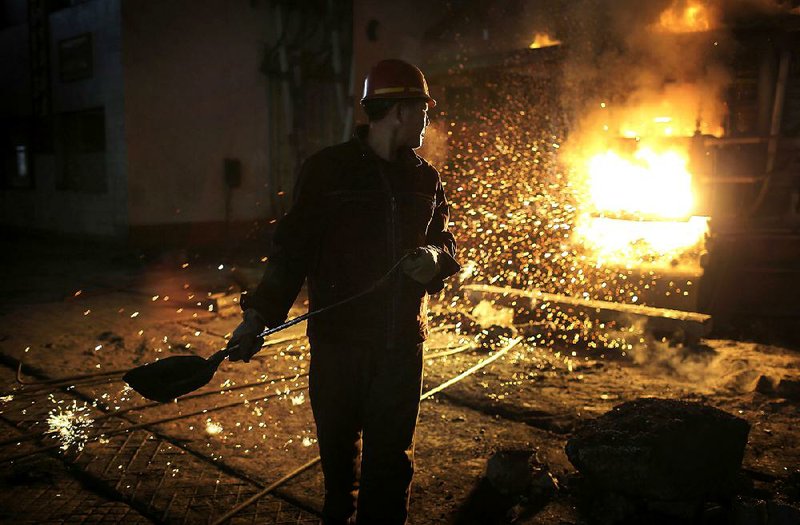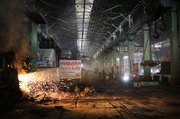NAMPO, North Korea -- North Korean officials and factory managers are scrambling to answer a call from leader Kim Jong Un for an all-out, nationwide effort to build up the country's economy in 2017.
Along with vowing to make yet more advances with nuclear weapons and long-range ballistic missiles, including an intercontinental ballistic missile, Kim called for the push to improve the economy in his annual New Year's address. Now, in something of a New Year's tradition, economic officials are rushing to make plans to fill that very tall bill.
"Last year, we made many achievements in the science and technology field and we made a lot of steel," Kim Kil Nam, vice chief engineer at the Chollima Steel Complex, said. "We are trying to consolidate those achievements and make even more steel this year, too, after hearing the marshal's New Year's address." Kim Jong Un is often referred to as the marshal, one of his many titles.
The sprawling Chollima complex south of Pyongyang, the capital, is a focal point of North Korea's effort to expand the economy and lift the nation's standard of living.
One of seven North Korean steelworks, Chollima has more than 8,000 workers and is among the North's showcase enterprises. Built by the Mitsubishi company during Japan's colonial rule of the Korean Peninsula from 1910 to 1945, it was destroyed and then rebuilt. Production resumed soon after the Korean War halted with an armistice in 1953.
Kim, the engineer, said the complex produced 120,000 tons of steel last year. But he noted that was partly the result of two "loyalty campaigns" of 70 and 200 days each. Such campaigns, which were also common in the Soviet Union and other communist countries, are designed to boost output, but are almost by definition unsustainable.
Even so, Kim said, with technological improvements, the plant hopes to produce 150,000 tons of steel this year. He said demand is high, in large part because of major high-rise construction projects in Pyongyang.
The North's economy, though far behind its neighbors, appears to have been growing slowly in the five years since Kim Jong Un assumed power.
But it continues to be weighed down by the inefficiencies of central planning and bureaucratic red tape, and a scarcity of resources and energy. Such problems are exacerbated by the country's outsize military budget, along with the cost in lost trade opportunities because of sanctions over its nuclear weapons program.
Kim said most of the Chollima plant's production is intended for domestic use, so it has not been significantly affected by sanctions.
"We have been living with sanctions for a long time, so we are used to that," he said.
SundayMonday Business on 01/15/2017

